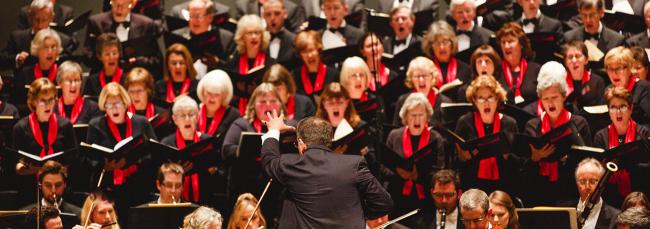Serenity, intensity and beauty - these link the works in this reflective uplifting spring programme from the Vivace Chorus

Serenity, intensity and beauty. This is what links this reflective and uplifting spring programme from the Vivace Chorus. Regularly voted as one of the most popular pieces by classical music fans, the powerfully passionate Adagio for Strings by Samuel Barber has been played at some of the most moving and poignant times in modern history, including during the TV announcement of the assassination of President John F Kennedy, at the Last Night of the Proms to commemorate victims of the 9/11 attacks and in 2016, outside the Brussels Stock Exchange, after the attacks there.
This is juxtaposed with a work so personal, the composer kept it hidden from the public for almost 50 years. Written in 1932 for the choir of King’s College, Cambridge, it was never actually performed, but following the tragic death in 1935 of Howells’ 9 year old son Michael from polio, it was reworked by Howells throughout his life. Much of the material was included in his masterpiece, Hymnus paradisi, first performed in 1950, but the Requiem itself was not published and performed in its current form until 1980, 3 years before the composer’s death.
And, although from one of the world’s most prolific and celebrated composers, the Mass in C minor is regarded by many to be Mozart's finest choral work, even finer than his incomplete Requiem, containing as it does some of his most exquisite musical utterances, created by the simplest and most beautiful of means.
| Barber: | Adagio for Strings |
| Howells: | Requiem |
| Mozart: | Mass in C Minor |
Vivace Chorus, Brandenburg Sinfonia, conducted by Jeremy Backhouse
Claire Seaton (Soprano), Lucy Goddard (Soprano), Roy Rashbrook (Tenor), Richard Walshe (Bass)
